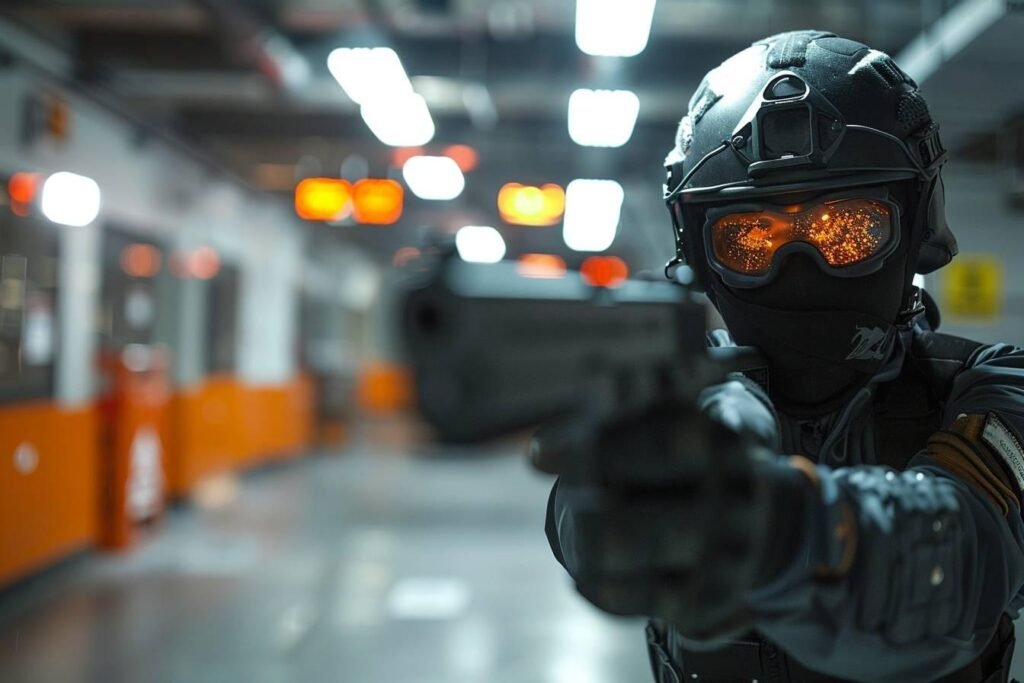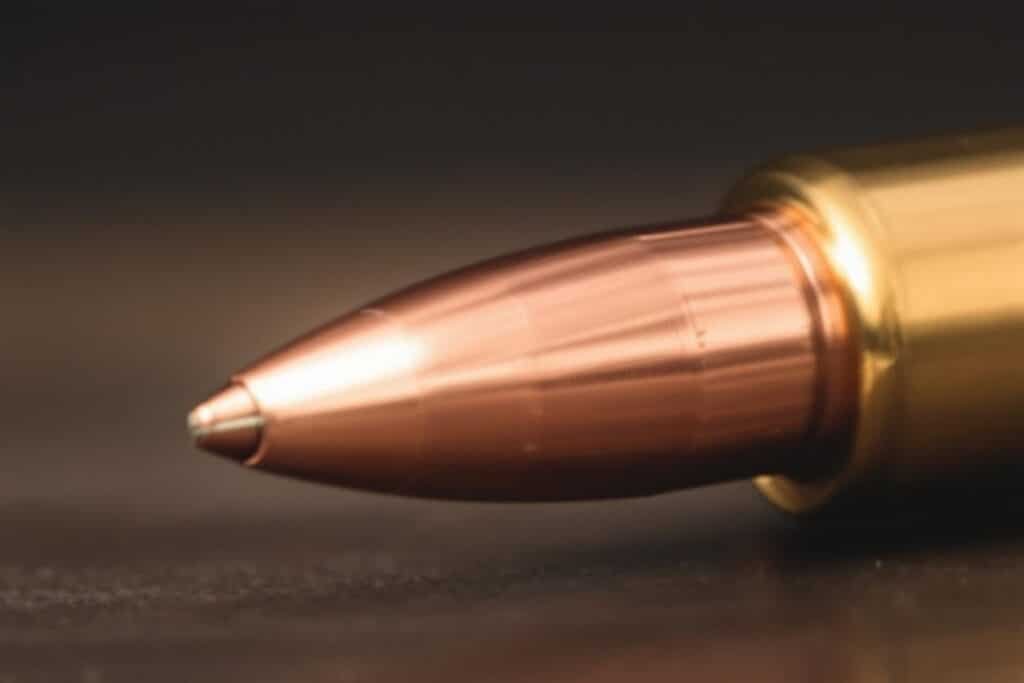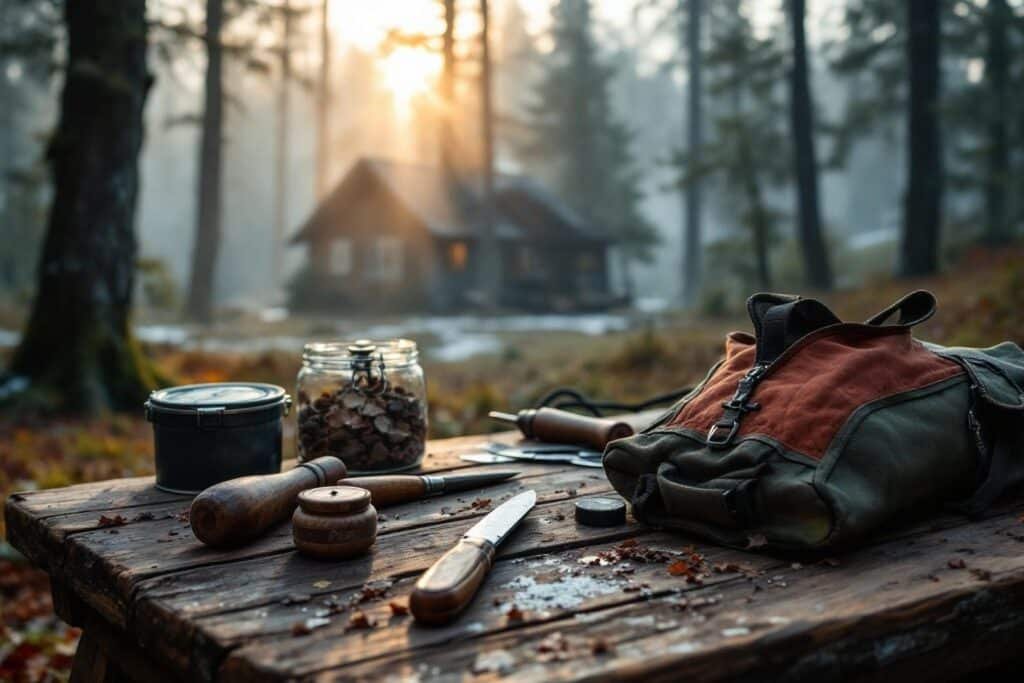The article in brief
This article sets out the essential precautions for the safe handling of firearms, for both novice and experienced owners.
- Golden rules consider any weapon to be loaded, control its direction, keep your finger off the trigger
- Maintenance and storage regular cleaning, secure storage in a safe
- Continuing education : raising awareness in the communityparticipation in courses, regular practice
- Safety culture responsible attitude, constant vigilance, knowledge sharing
Ah, my friends! Getting ready to handle weapons? Let me tell you, it's a subject that's particularly close to my heart. As a gun shop owner, I've seen a lot of customers, from novices to experts. And believe me, precautions for handling weapons are essential, whether you're a seasoned shooter or an enthusiastic beginner. So fasten your seatbelts, we're about to dive into this captivating but potentially dangerous world if you don't follow a few basic rules.
The golden rules of firearms safety
Rule number one: a gun is always loaded
I can't say it often enough: consider always a weapon as loaded, even if you're sure it's not. That's the basis of the basis! A customer once told me that he almost accidentally shot his gun in his garage because he was 'certain' it was empty. Fortunately, all that happened was that he was scared and learned a valuable lesson.
Control the direction of your weapon
The second rule, which is just as crucial: don't point your finger. never a weapon to something you don't want to destroy. Sounds logical, doesn't it? But you'd be surprised how many people forget this basic principle. Always keep the barrel pointed in a safe direction, whether at the range or when cleaning.
Finger off the trigger, that's the key
Third golden rule: keep your index finger away from the trigger until you're ready to shoot. This is called "finger discipline". Believe me, it can prevent a lot of accidents. I've seen experienced shooters make this mistake, so stay alert!
Maintenance and storage: the pillars of safety
Regular cleaning for a reliable weapon
Let's talk maintenance! A Glock 17 gen 5 en or a good old-fashioned revolver, it doesn't matter: every gun deserves regular maintenance. After each shooting session, take the time to clean it. Here are the essential steps:
- Check that the gun is unloaded (yes, again!)
- Dismantle it according to the manufacturer's instructions
- Clean each part with a suitable solvent
- Lubricate moving parts (sparingly)
- Reassemble the weapon and check that it works properly
Don't forget to do this in a well-ventilated area. The last thing you need is to be dizzy from solvent fumes!
Secure storage, a legal and moral obligation
Let's talk about storage! This is a crucial aspect of security. Here's a short table summarising good practice:
| To do | What to avoid |
|---|---|
| Use a safe or secure cabinet | Leaving a weapon unattended |
| Storing unloaded weapons | Storing weapons and ammunition together |
| Educating the family about safety rules | Simply hiding weapons without securing them |
I remember one customer who used to store his guns in his broom cupboard. When I explained the risks to him, he quickly invested in a good safe. Prevention is better than cure, as they say!

The importance of education and training
Raising awareness, a responsibility for owners
As a gun owner, you have a responsibility to educate those around you, especially children. Explain to them the potential dangers and the basic rules. I always recommend that my clients organise 'family meetings' on the subject. It's serious, but it doesn't have to be scary. The aim is to create a safe and informed environment.
Continuous training to stay vigilant
Training never stops, even for experienced shooters. Techniques evolve, new weapons appear, and you can always hone your skills. Take part in regular safety and handling courses. Not only is it rewarding, but it also keeps you up to date and vigilant.
Practise regularly to maintain your reflexes
Regular practice is essential to maintain your skills and safety reflexes. Visit the shooting range at least once a month. It's a good opportunity to go over safety procedures, check the condition of your gun and remember the responsibility that goes with owning it.
Towards a responsible safety culture
At the end of the day, safe gun handling requires a responsible attitude and constant vigilance. Every gun owner should be an ambassador for safety. Share your knowledge, lead by example, and don't hesitate to intervene if you see someone neglecting the safety rules.
Remember, safety is not a constraint, it's what allows us to enjoy our passion fully and serenely. So, my friends, handle your weapons with respect, look after them with care, and pass on these values to those around you. That's how we'll create a community of responsible and safe shooters.
And don't forget, if you have any questions or doubts, come and see me in the armoury. I'd be delighted to talk safety over a cup of coffee!
To find out more, I recommend that you consult the weapons wiki. Knowledge is power, especially when it comes to safety!



